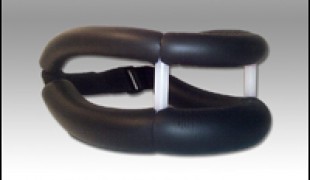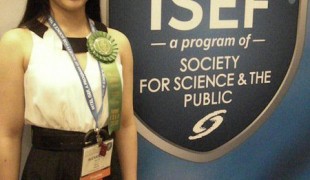- 5369
- 419
- 9
- 8
- 0
- Help Ukraine
About the solution
Omer suffered knee pain himself and had been thinking about developing such a device for some time. He was a discus thrower and a three-time NCAA All-American at Stanford University and the school record holder.
Because of whirling around for several years, and because of the stress and strain of weight required in the training, his knees started to crack.
“I would always feel like my knee was creaking or popping more if I was putting more stress on it,” the professor said.
When the Defense Advanced Research Projects Agency presented a call for research proposals on wearable technologies for assisting rehabilitation, the researcher pitched his idea.
So Omer started working on knee band with microphones and vibration sensors to listen to and measure the sounds inside the joint. Acoustic electronics turn them into moving graphs that may someday be medically useful.
This innovation can lead to a future device to help orthopaedic specialists assess damage after an injury and track the progress of recovery.
Adapted from: https://bit.ly/2LWcFod
https://b.gatech.edu/2OAsdjA
More info: https://bit.ly/317TiMr
https://www.youtube.com/watch?v=rCGCv17Spx4
This solution shall not include mention to the use of drugs, chemicals or biologicals (including food); invasive devices; offensive, commercial or inherently dangerous content. This solution was not medically validated. Proceed with caution! If you have any doubts, please consult with a health professional.
DISCLAIMER: This story was written by someone who is not the author of the solution, therefore please be advised that, although it was written with the utmost respect for the innovation and the innovator, there can be some incorrect statements. If you find any errors please contact the patient Innovation team via info@patient-innovation.com
-
-
292
-
0
-
3815

shanesneckbrace
VENTILATION
WALKING: Walking
BODY BALANCE: Maintaining body balance
STANDING UP: Standing up from a seated position
SLEEP FUNCTION: Resting
CAREGIVING
Spinal Cord and Nerve Root Disorders
Treatment/Surgical device
Gait abnormalities (e.g., walking difficulties, unsteady gait)
Tremors
Muscle cramps or spasms
Stiffness or rigidity (difficulty moving)
Paralysis of the legs and lower body
Muscle weakness
Loss of balance
Numbness or tingling in the extremities
Fatigue
Managing pain
Promoting self-management
Preserving Organ Function
Managing Neurological Disorders
Recovering from Traumatic Injuries
Restoring Blood Circulation
To improve Treatment/Therapy
Preventing (Vaccination, Protection, Falls, Research/Mapping)
Neurology
Neurosurgery
Orthopedics
Physical Medicine and Rehabilitation
Rheumatology
Sports Medicine
United States
-
-
-
376
-
0
-
4043

Woman creates walker stabilizer for her grandfather
WALKING: Walking
WALKING WITH A WALKING AID: Walking with a walking aid
Parkinson's Disease
Arthritis
Muscle Tone Abnormalities weakness
Walking Aid (wheelchair/walker/crutches)
Assistive Daily Life Device (to help ADL)
Difficulty walking or moving
Gait abnormalities (e.g., walking difficulties, unsteady gait)
Muscle weakness
Tremors
Muscle cramps or spasms
Difficulty coordinating movements
Stiffness or rigidity (difficulty moving)
Limited range of motion
Muscle pain or stiffness
Loss of balance
Loss of muscle coordination
Joint deformity
Swelling or inflammation
Frequent falls
Joint pain or swelling
Maintaining Balance and Mobility
Caregiving Support
Neurology
Orthopedics
Rheumatology
United States
-
-
-
757
-
0
-
10759

Patient develops cane to grab stuff
Grip
WALKING: Walking
WALKING WITH A WALKING AID: Walking with a walking aid
Kyphosis
Scoliosis
Bone Disorders (Decalcification, Bone Deformity, Bone Fracture, Bone Infection)
Limb Deformity
Congenital Defects (Coarctation of the Aorta, Dextrocardia, Septal Defects)
Assistive Daily Life Device (to help ADL)
Walking Aid (wheelchair/walker/crutches)
Difficulty walking or moving
Muscle weakness
Limited range of motion
Muscle pain or stiffness
Reduced grip force (grip)
Loss of muscle coordination
Muscle cramps or spasms
Joint deformity
Joint redness or warmth
Swelling or inflammation
Fatigue
Numbness or weakness in the legs
Swelling/edema of the legs or ankles.
Joint pain or swelling
Shortness of breath
Restoring mobility
Maintaining Balance and Mobility
Preventing (Vaccination, Protection, Falls, Research/Mapping)
Cardiology
General and Family Medicine
Medical Genetics
Orthopedics
Rheumatology
United States
-
 en
en